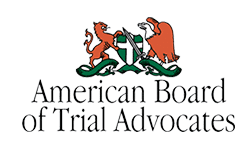The Prevalence of Medication Errors in Nursing Homes

Nursing home facilities are trusted by millions of families to take care of elderly loved ones. When that care is subpar or worse, residents could suffer physically, emotionally, socially, or financially. In regard to their health, the majority of long-term care facility residents take medication to improve or maintain conditions. When medication errors are made, severe reactions could occur or conditions could worsen significantly. It’s possible a neglected resident could end up in the hospital or suffer fatal injuries from the mistake.
According to a study published in the Journal of the American Geriatrics Society, 16 to 27 percent of all nursing home residents are victims of medication errors. While death resulting from medication mistakes is rare, other complications are possible. If your loved one is in a nursing home, it’s important to know about the prevalence of medication errors in their facility. They’re more common than many people realize. Understanding why they happen and what the possible effects are can help prevent future mistakes being made.
Causes of Medication Mistakes in Long-Term Care Facilities
Some of the most common medication mistakes are caused by understaffing, misdiagnosis, confusion regarding administration, and incorrect transcriptions of dosages or prescriptions. Medication errors can be knowledge-based, rule-based, action-based, or memory-based.
Knowledge-based errors happen when a staff member does not have enough information on the medication they’re supposed to be giving a resident. They may be unaware of a patient’s medical history, allergies, diet, or other prescriptions. Not knowing this information could lead to a preventable reaction.
Rule-based errors occur when employees neglect to follow protocol, intentionally or unintentionally. This happens when a nurse is improperly trained, fatigued, confused about a rule, or is unclear on the prescription instructions.
Action-based errors happen when employees have the correct information but make a mistake anyway. These are the most common types of medication errors. A nurse might write down the wrong prescription, pick up the wrong bottle off the pharmacy shelf, or misread a label.
Memory-based errors affect how medication is administered. If a resident receives a number of medications and a nurse administers one twice without realizing it, serious consequences could ensue. These errors are often made when staff are overworked and fatigued.
Examples of Medication Errors
Common medication mistakes in nursing homes include the following:
- Giving too much or too little medicine
- Using an incorrect administration technique
- Failing to monitor a resident after giving medication
- Giving expired medications
- Giving the wrong form or strength of medication
- Documenting the administration incorrectly
- Having a lab error
Preventing Medication Errors in Nursing Homes
In order to avoid medication errors, The Institute of Safe Medication Practices (ISMP) advises nursing home facilities staff be aware of the following elements:
- Patient Information. It’s important to verify a patient is receiving medication prescribed to them. To do this, staff should verify the patient’s name, age, birth date, weight, allergies, diagnosis, current lab results, and vital signs.
- Drug Information. All medical staff dispensing medicine should have access to accurate and current drug information. This could come from protocols, text references, order sets, computerized drug information systems, patient profiles, or medication administration records.
- Adequate Communication. Communication barriers between physicians, pharmacists, and nurses should be eliminated.
- Drug Packaging, Labeling, and Nomenclature. Every nursing home should ensure that all medications they receive are in clearly labeled unit-dose packages.
- Medication Storage, Stock Standardization, and Distribution. Medication errors can be prevented by decreasing availability to floor-stock medications, distributing new medications efficiently, and restricting access to high-alert drugs.
- Drug Device Acquisition, Use, and Monitoring. The devices used to administer medications should be checked for flaws regularly, to avoid over or under medicating.
- Environmental Factors. When a nursing home employee is administering medication there should be ample lighting, clear space, and minimal distractions.
- Staff Education and Competency. When new medications enter a nursing home, all staff should be provided with information on them. Medication-related policies, procedures, and protocols should be regularly reviewed and updated.
- Patient Education. Caregivers in long-term care facilities should teach patients the names of their medications, what they look like, how they’re supposed to take it, what the dosage is, the potential reactions, and what it’s being used to treat.
If your loved one has suffered injuries because of a medication error or any other form of abuse or neglect, legal representation from Pittman Roberts & Welsh, PLLC can help you hold the nursing home or employee responsible for their actions. While we’re located in Jackson, we help victims of personal injuries all over Mississippi. To learn more about how you can recover compensation on behalf of your loved one for their injuries and suffering, schedule a free consultation with us.







